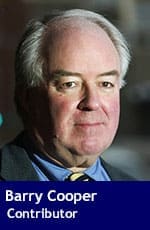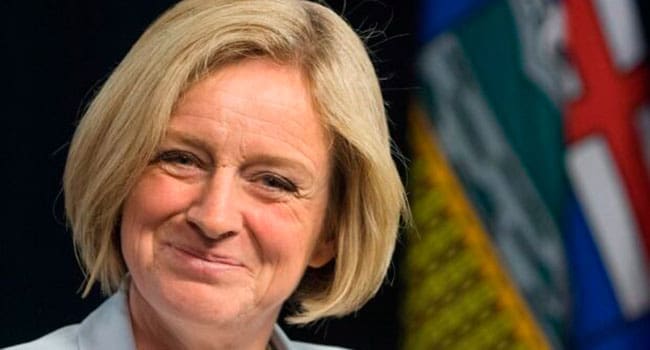 In the federal election last fall 60 percent of Albertans voted Conservative. Twelve percent voted NDP. The provincial NDP was unimpressed. They have continued to govern as if they actually won the election last spring, not that the PCs lost it.
In the federal election last fall 60 percent of Albertans voted Conservative. Twelve percent voted NDP. The provincial NDP was unimpressed. They have continued to govern as if they actually won the election last spring, not that the PCs lost it.
Alberta now enjoys a $3 billion carbon tax, which was unmentioned in the NDP election platform and is opposed by two out of three Albertans. Premier Rachel Notley initially said it was revenue-neutral when clearly it was not. Now she calls it “recycling” because the taxes will be raised and spent in Alberta. Where else would she spend tax revenue? New Brunswick?
Following the advice of Rick Smith of the deeply anti-Alberta Broadbent Institute, Notley called for coal-generated electricity to be extinguished. The cost of doing so is between $4 billion and $12 billion. But there was nary a mention that we are sitting on an 800-to a thousand-year supply of the stuff, nor that Alberta is a leader in, and has quick access to, clean coal technologies and smokestack scrubbers.
We are promised petroleum royalty regime-change at a low point in the price cycle. Energy minister McCuaig-Boyd said the industry “will welcome” the change. That “will” is to be read as an imperative, not the use of the future tense.
Subsidies to so-called green technologies promise salvation. This has eluded the Germans, the Americans, and the Brits. Chasing this chimera has cost Ontario its future prosperity.
Recently in Paris, where Notley was not actually at the negotiating table but simply there to “support” the federal government, she hinted at a “climate leadership plan” that would appeal to “global stakeholders and experts.” She has plans “to bend the curve on emissions in a way that no one ever expected to see coming out of Alberta.” As the director of the alarmist Pembina Institute, Ed Whittingham, said, Alberta is “back in the climate game.” Game indeed.
The NDP has also developed a “negotiating model” for dealing with teachers’ unions. Recently Calgary Herald columnist Don Braid reported it was “routine” for union bosses to be appointed to public bodies. The triumph of public-sector unions is at the heart of the longevity of the Ontario Liberal party and of the ruin of the Ontario economy. Clearly, we are next.
More recently the premier announced with great satisfaction that Alberta is no longer an “outlier,” which was more polite than her saying earlier that we are “an embarrassing cousin no one wants to talk about.” The meaning is the same: Notley’s Alberta is just a normal, boring, socialist place where governments rule sheep and the main concerns are affordable housing, healthcare governance, and, as Shannon Phillips, minister for the status of women, put it, “building feminism,” whatever that might be.
Well, no one can say we haven’t been warned. To paraphrase Karl Marx, the NDP has become the executive committee of a coalition of radical enviros and social activists peddling ideological nostrums of a generation ago.
Fortunately for normal Albertans, the outside world has noticed.
In 2014 Alberta was the 16th most attractive place in the world to invest in oil and gas developments. In 2015 it was 38th. Over half the respondents to this survey cited political uncertainty. Saskatchewan was ranked 8th. No wonder our credit rating was downgraded.
Meanwhile, Wildrose leader Brian Jean was working to create a “consolidated conservative coalition.” This helpful activity was immediately seen as a “unite the right” initiative. Given how radical the NDP has shown itself to be, Jean needs to unite the centre. After all, that’s where 60 percent of Albertans are.
Barry Cooper is a professor of Political Science at the University of Alberta.
Barry is a Troy Media contributor. Why aren’t you?
The views, opinions and positions expressed by columnists and contributors are the author’s alone. They do not inherently or expressly reflect the views, opinions and/or positions of our publication.


